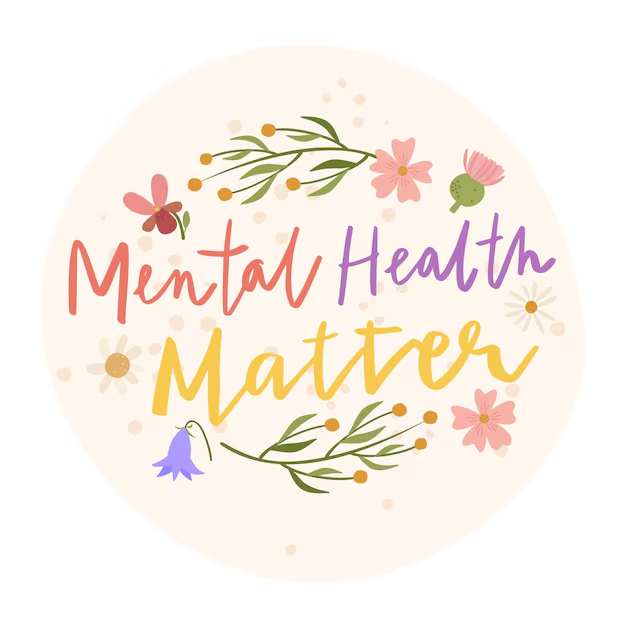In our fast-paced world, maintaining good health can often feel like a daunting task. However, prioritizing your well-being is essential for a happier and more fulfilling life. we’ll explore practical and actionable health tips that you can incorporate into your daily routine. Whether you’re looking to improve your diet, boost your fitness levels, manage stress, or enhance your overall wellness, these tips are designed to help you achieve your health goals.
1. Eat a Balanced Diet
Understanding Nutrition
A balanced diet is the foundation of good health. It consists of a variety of foods from all food groups, including fruits, vegetables, whole grains, lean proteins, and healthy fats. Each food group offers unique nutrients that your body needs to function optimally.
Tips for a Balanced Diet
Incorporate Color: Aim to fill your plate with colorful fruits and vegetables. Each color represents different vitamins and minerals that are crucial for your health.
Choose Whole Grains: Opt for whole grains over refined grains. Whole grains like brown rice, quinoa, and oats are rich in fiber and essential nutrients.
Limit Processed Foods: Processed foods often contain added sugars, unhealthy fats, and preservatives. Try to minimize your intake and focus on whole, unprocessed foods.
2. Stay Hydrated
Importance of Hydration
Water is essential for maintaining bodily functions, including digestion, circulation, and temperature regulation. Dehydration can lead to fatigue, headaches, and decreased cognitive function.
Hydration Tips
Drink Water Regularly: Aim for at least eight 8-ounce glasses of water a day, or more if you’re active or in a hot climate.
Flavor Your Water: If plain water bores you, infuse it with fruits, herbs, or vegetables. Options like lemon, cucumber, and mint can add refreshing flavors.
Monitor Your Urine Color: A light yellow color indicates proper hydration, while dark yellow may signal dehydration.
3. Exercise Regularly
Benefits of Physical Activity
Regular exercise is crucial for maintaining a healthy weight, improving cardiovascular health, and enhancing mental well-being. It releases endorphins, which can elevate your mood and reduce stress.
Exercise Tips
Find Activities You Enjoy: Whether it’s dancing, swimming, cycling, or yoga, choose activities that you find enjoyable to make exercising more sustainable.
Set Realistic Goals: Start with small, achievable goals and gradually increase your activity level. Aim for at least 150 minutes of moderate aerobic activity each week.
Incorporate Strength Training: Include strength training exercises at least twice a week to build muscle and improve metabolism.
4. Prioritize Sleep

Importance of Quality Sleep
Sleep is vital for overall health. It allows your body to recover, repair, and recharge. Poor sleep can lead to various health issues, including obesity, diabetes, and mental health disorders.
Sleep Tips
Establish a Sleep Routine: Go to bed and wake up at the same time every day, even on weekends, to regulate your body’s internal clock.
Create a Sleep-Friendly Environment: Make your bedroom comfortable by keeping it dark, quiet, and cool. Consider using blackout curtains and white noise machines if needed.
Limit Screen Time Before Bed: The blue light emitted by screens can interfere with your sleep. Try to avoid screens for at least an hour before bedtime.
5. Manage Stress Effectively

Understanding Stress
Chronic stress can have detrimental effects on both physical and mental health. It can lead to a variety of issues, including anxiety, depression, and cardiovascular disease.
Stress Management Tips
Practice Mindfulness and Meditation: Mindfulness techniques can help you stay grounded and reduce stress. Consider incorporating meditation or deep-breathing exercises into your routine.
Stay Connected: Spend time with friends and family. Social connections can provide emotional support and help reduce stress levels.
Set Boundaries: Learn to say no and prioritize your time. Setting boundaries can help prevent overwhelm and promote a healthier work-life balance.
6. Regular Health Check-ups

Importance of Preventive Care
Regular health check-ups are essential for early detection and prevention of diseases. They allow you to monitor your health and make informed decisions about your well-being.
Tips for Health Check-ups
Schedule Routine Screenings: Depending on your age and health history, schedule regular screenings for blood pressure, cholesterol, diabetes, and cancer.
Communicate with Your Healthcare Provider: Be open about your health concerns and ask questions during your appointments.
Stay Informed: Educate yourself about your health and the importance of preventive care. Knowledge is empowering.
7. Limit Alcohol and Avoid Smoking

Impact of Alcohol and Tobacco
Excessive alcohol consumption and smoking can lead to a range of health issues, including liver disease, lung cancer, and heart problems. Reducing or eliminating these habits can significantly improve your overall health.
Tips for Reducing Alcohol and Quitting Smoking
Set Limits: If you choose to drink alcohol, do so in moderation. The CDC recommends up to one drink per day for women and up to two drinks per day for men.
Seek Support: If you’re trying to quit smoking, consider seeking support from friends, family, or a support group. There are also various resources and medications available to assist you.
Find Alternatives: Explore healthier coping mechanisms for stress, such as exercise, hobbies, or relaxation techniques.
8. Mental Health Matters

Understanding Mental Well-Being
Mental health is just as important as physical health. It influences how we think, feel, and act. Prioritizing mental well-being can lead to a happier, more balanced life.
Mental Health Tips
Seek Professional Help: If you’re struggling with mental health issues, don’t hesitate to seek help from a mental health professional. Therapy can provide valuable tools and support.
Engage in Hobbies: Pursue activities that bring you joy and fulfillment. Hobbies can be a great way to relieve stress and boost your mood.
Practice Gratitude: Keeping a gratitude journal can help shift your focus to the positive aspects of your life. Regularly reflecting on what you’re thankful for can enhance your overall well-being.
9. Stay Educated

Importance of Health Literacy
Understanding health information is crucial for making informed decisions about your well-being. Staying educated about health topics can empower you to take control of your health.
Tips for Staying Informed
Follow Reputable Sources: Subscribe to health newsletters, follow reputable health organizations, and read books by trusted experts in the field.
Stay Current on Health News: Keep up with the latest health news and research to stay informed about new findings and trends.
Ask Questions: Don’t hesitate to ask your healthcare provider questions about your health or treatment options. Being informed is key to effective healthcare.
10. Embrace a Positive Mindset

The Power of Positivity
A positive mindset can greatly impact your health and overall well-being. It can help you cope with challenges, reduce stress, and enhance your quality of life.
Tips for Cultivating Positivity
Practice Self-Compassion: Treat yourself with kindness and understanding, especially during difficult times. Remember that everyone makes mistakes and faces challenges.
Surround Yourself with Positivity: Spend time with positive, supportive people who uplift and encourage you. Their energy can have a profound effect on your mindset.
Engage in Positive Self-Talk: Challenge negative thoughts and replace them with positive affirmations. Speak to yourself as you would to a close friend.
Conclusion
Achieving a happier, healthier you is a journey that requires commitment, patience, and self-compassion. By incorporating these health tips into your daily routine, you can create a solid foundation for your well-being. Remember that every small change can lead to significant improvements over time. Focus on progress rather than perfection, and celebrate your achievements along the way. Your health is your most valuable asset, and investing in it will pay dividends in all areas of your life.
FAQs
What is a balanced diet?
A balanced diet includes a variety of foods from all food groups—fruits, vegetables, grains, protein, and dairy—ensuring that your body gets all the essential nutrients it needs to function optimally.
How much water should I drink daily?
While the general guideline is to drink at least eight 8-ounce glasses (about 2 liters) of water per day, individual needs may vary based on factors such as activity level, climate, and overall health.
What are the best types of exercises for beginners?
For beginners, low-impact activities such as walking, swimming, cycling, and yoga are great options. Gradually introducing strength training exercises can also be beneficial for overall fitness.
How can I improve my sleep quality?
Improving sleep quality can be achieved by establishing a consistent sleep schedule, creating a comfortable sleep environment, limiting screen time before bed, and practicing relaxation techniques.
What are some effective stress management techniques?
Effective stress management techniques include mindfulness meditation, deep-breathing exercises, physical activity, maintaining social connections, and setting realistic boundaries in your personal and professional life.
How often should I have health check-ups?
Routine health check-ups should be conducted annually, but frequency may vary based on age, health conditions, and recommendations from your healthcare provider. Regular screenings are crucial for early detection of potential health issues.
How can I quit smoking?
Quitting smoking can be challenging, but strategies like setting a quit date, seeking support from friends or support groups, using nicotine replacement therapies, and developing healthy coping mechanisms can significantly increase your chances of success.
What should I do if I experience mental health issues?
If you are struggling with mental health issues, it’s important to reach out for help. Consider speaking to a mental health professional, therapist, or counselor who can provide support and guidance tailored to your needs.
How can I maintain a positive mindset?
Maintaining a positive mindset involves practicing gratitude, surrounding yourself with positive influences, engaging in self-care, and reframing negative thoughts into constructive ones. Regularly challenging yourself to focus on the positives can foster resilience.
Why is health literacy important?
Health literacy enables individuals to understand health information, make informed decisions, and effectively navigate the healthcare system. Being educated about health can empower you to take control of your well-being and advocate for yourself.





